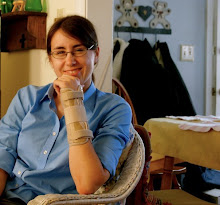Now I want you to fill it with people. Start with casual acquaintances, friends of friends, folks around the office... and then you move into the people you trust with your most intimate secrets. Your brothers, your sisters, your children, your parents and finally your husband, your wife, your boyfriend, your girlfriend. You get them into that backpack, feel the weight of that bag. Make no mistake your relationships are the heaviest components in your life. All those negotiations and arguments and secrets, the compromises. The slower we move the faster we die. Make no mistake, moving is living. Some animals were meant to carry each other to live symbiotically over a lifetime. Star crossed lovers, monogamous swans. We are not swans. We are sharks.
It may surprise some of you when I say that I think he is right. Relationships are the heaviest part of our lives. They are demanding of our attention and resources and they can be very severe stressors. They may wish to prevent you from doing whatever you want to, or they may do this totally without intending to, because you deliberately factor in your relationship with this person or these people when you're making a decision. I can certainly verify from personal experience that this is true. I've made the decision to spend this coming summer in DC, but it wasn't done without giving some considerable and agonizing thought for what I would lose in time with my family and with my friends at home.
Does the weight of the relationships on our lives really make them a bad thing, though, as Ryan implies during his talk in the movie? There are arguments either way, I suppose-- Ryan makes a cogent argument above for why they are a problem. And certainly if you want to live a life like his, traveling almost nonstop, they would be a huge issue. I have to wonder if it would even be possible-- much less desirable-- to have a family and maintain that lifestyle. Probably not.
But for the rest of us, who are a little more anchored down in our lives, I would submit that in this talk, Ryan is wrong to suggest that relationships are inherently bad. On the contrary, relationships of any variety are the only thing that are really worth putting that much effort into. Done right, they can last a lifetime, and the security of knowing someone is there for you no matter what is worth the risks inherent in opening your heart to them. [Although my personal caveat to that is that you should be careful who you really trust, because not everyone deserves something that important.]
In college, balancing relationships and work can be just as tricky as juggling them in the work world. At my university, there are so many things to do-- part-time jobs, internships, homework, clubs-- that making time to build relationships can be hard. Personally, although I do work hard on academic stuff, I try to keep my priorities on the people around me, where I think they really belong. When work really needs to get done, it's going to get done, but it can be well worth it to spend a couple of hours talking to a friend and then stay up writing until 3am. As Tom Petty said, the work never ends, but college does. I've got a little over a year left myself, and some of my closest friends are leaving at the end of this year. I plan to enjoy every second with them that I can, because, as Ryan admits later in the movie, "Life's better with company."
